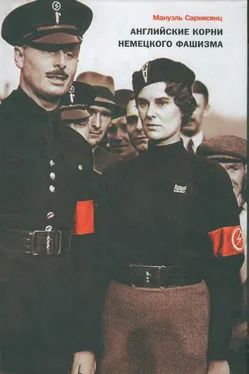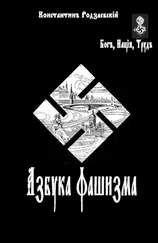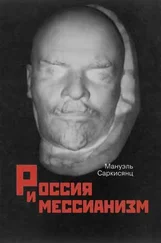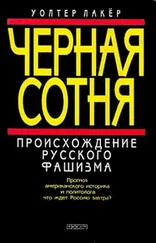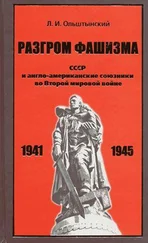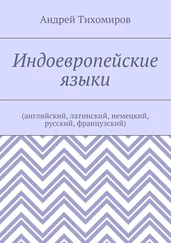Ведь функции прагматической составляющей этого «сверхчеловеческого» обещания уже исполнял «кэнт» (cant) — оценка другой стороны по моральным критериям, а собственной — по утилитаристским, основанная на представлении об избранности: мораль, таким образом, оставалась — двойная (прим. автора).
Hermann Goering, Ansprache vom 6. August 1942 vor dem Reichskommissaren fur die besetzten Gebiete und den Militarbefehlshabern: Klee & Dressen, «Gott mit uns»…, S. 204.
Heinrich Himmlers Rede vor SS-Gruppenfuhrer-Tagung am 4. Oktober 1943: Klee & Dressen, «Gott mit uns»…, S. 223; Lord Milner, The Nation and the Empire, p. 207.
Hitler, Monologe im Fuhrerhauptquartiert, S. 60: Nacht vom 14./15. September 1941.
Heinrich Himmler, Rede vom 9. Juni 1942: Himmler, Geheimreden, S. 151.
Hitlers Zweites Buch (wie Anm. 3), S. 215; Richard Wagner, Werke. Hrsg. von Peter Faessler, Band II (Frankfurt, 1966), S. 268, 269, 270, 271; Rauschning, Gesprache mit Hitler, S. 11.
Rauschning, Die Revolution des Nihilismus. Kulisse und Wirklichkeit im Dritten Reich (Zurich, 1938), S. 384.
Rutherford, Forever England, p. 59; Thurlow, Fascism in Britain, p. 86; Ernst Bertran, Rede vom 3. Mai 1933, nach Deutsche Zeitschrift, XLVI (o. J.), S. 611, zitiert in: Franz Schonauer, Deutsche Literatur im Dritten Reich (Olten, Freiburg i. В., 1961), S. 55.
Joachim Kohler, Wagners Hitler, S. 249.
Hartmut Zelinsky, Richard Wagner — ein deutsches Thema. Dokumentation… (Berlin, 1983), S. 170: 1. Januar 1924.
Joachim Kohler, S. 417, 410, 405, 384, 11, 13.
Ibid., S. 248–251. Vgl. Margarete Plewnia, Auf dem Wage zu Hitler. Der volkische Publizist Dietrich Eckart (Berlin, 1970), S. 94–111.
Thurlow, Fascism in Britain, p. 86.
Cosima Wagner, Tagebuch, Band II (Munchen, 1982), S. 1052: Eintragung vom 25. Mai 1877.
James J. Barnes & Patience P. Barnes, Hitlers «Mein Kampf» in Britain and America, The publication history 1930–1939 (Cambridge, 1980), S. 48.
A. M. Gollin, Proconsul in Politics, A study of Lord Milner (London, 1964), pp. 46, 47, 603, 573; Keith Feiling, The Life of Neville Chamberlain (London, 1947), pp. 79f:
Chamberlain's Diary, note of 22. April, 1917.
H. Arendt, Elements und Ursprunge totaler Herrschaft, S. 719.
Geworfensein in das Nichts — термин хайдеггеровской философии (прим. автора).
Hans Grimm, Heynade, IV, S. 5.
D. S. Lewis, Oswald Mosley, Fascism and British Society (as note 884), p. 263, 266.
Vgl. R. Griffiths, Fellow-Travellers of the Right, S. 59.
Oswald Mosley, My Life (London, 1968), S. 364f.
Theodor Schieder, Hermann Rauschmngs «Gesprache mit Hitler» als Geschichtsquelle = Rheinisch-Westfalische AkademiederWissenschaften, Vortrage,G 178(Opladen, 1971), S. 15.
Thomas Jones, A Diary with Letters 1931–1950 (Oxford, 1954), p. 447f.
Patricia Meehan, The Unnecessary War (London, 1992), p. 388f: Foreign Office 371/ 46 790;370/1268.
John Charmley, as quoted by Caputi, p. 221.
American Historical Review, Vol. CIII, No. 3 (June, 1998), p. 894.
Mac Dougal, The racial Myth in England history (wie Anm. 115), p. 129–130; Edwin Jones, The English Nation. The Great Myth, p. 55.
David Armitage, Ideological Origins of the British Empire (Cambridge, 2000), p. 78;
William Haller, Foxe's Book of Martyrs and the Elect Nation (London, 1963).
Donald & Joanna Moore, The First 150 years of Singapore (Singapore, 1969), pp. 594f; cf. Kathryn Tidrick, Empire and the English Character (1992), p. 279.
Lawrence James, Rise and Fall of the British Empire (London, 1994), p. 504.
BBC Broadcast of 29. December, 1996, 4.30–4.45 (programme directed to North America).
Lord Milner, The Nation and the Empire (1913), pp. xxxi f, xxxv: «The Two Nations» (4. December, 1912); Dibelius, II, S. 204f, 215, 216.
Alfred Milner, «The Two Nations», Speech on 4. Dezember 1912: The Nation and the Empire (London, 1913), p. xxxf, xxxv; Wilhelm Dibelius, England, II, S. 215, 216, 204f; BBC-Radiosendung vom 29. Dezember 1996, 4.30–4.45 Uhr.
Alfred Milner, «Key to My Position»: Questions of the Hour (London, 1925), quoted by Richard Symonds, Oxford and Empire (Oxford, 1991), p. 44; Walter Oehme & Kurt Caro, Kommt das Dritte Reich»? Berlin, 1930—Rohwolt: reprint 1984— Ei chhorn), S. 52; Max Vandray, Der politische Witz im Dritten Reich (Munchen, 1967), p. 149; Louis Kilzer, Churchill's Deception. The dark secret that destroyed Nazi Germany (New York, 1994), pp. 57f, 294 (George Bernhard, in: New York Times of 29. June, 1941, p. 6E), 74f, 286, 289, 61.
Klaus Hildebrand, Das vergangene Reich. Deutsche Aussenpolitik von Bismark bis Hitler. 1871–1945 (Stuttgart, 1995), S. 806f; Costello, p. 187.
G. Strobl, Germanic Isle. Nazi perceptions of Britain (Cambridge, 2000), pp.93f; H. Thost, Als Nationalsozialist in England (Munchen, 1939), S. 60; vgl. Wendt, S. 126.
Ориентация на Россию соответствовала тогда представлениям именно национальных, консервативных мыслителей Германии, — таких, как Освальд Шпенглер, Эрнст Юнгер, Мёллер ван дер Брук (прим. автора) (Мёллер ван дер Брук, Артур (1876–1925) — нем. писатель, автор книги «Третий рейх» (прим. перев.)).
Hans Grimm, Heynade, V, S. 351; vgl. Otto Strasser, Hitler und ich (Konstanz, 1948), S. 139, 142; О. E. Schiiddekopf, Linke Leute von rechts (Stuttgart, 1960), S. 283–287.
В «Mein Kampf» сказано: Германия должна была сыграть «роль Японии в 1904 году». То, что в виду имеется именно нападение на Россию, однозначно следует из замечания: при этом Германии пришлось бы пролить меньше крови, чем в мировой войне против Англии (прим. автора).
Читать дальше
